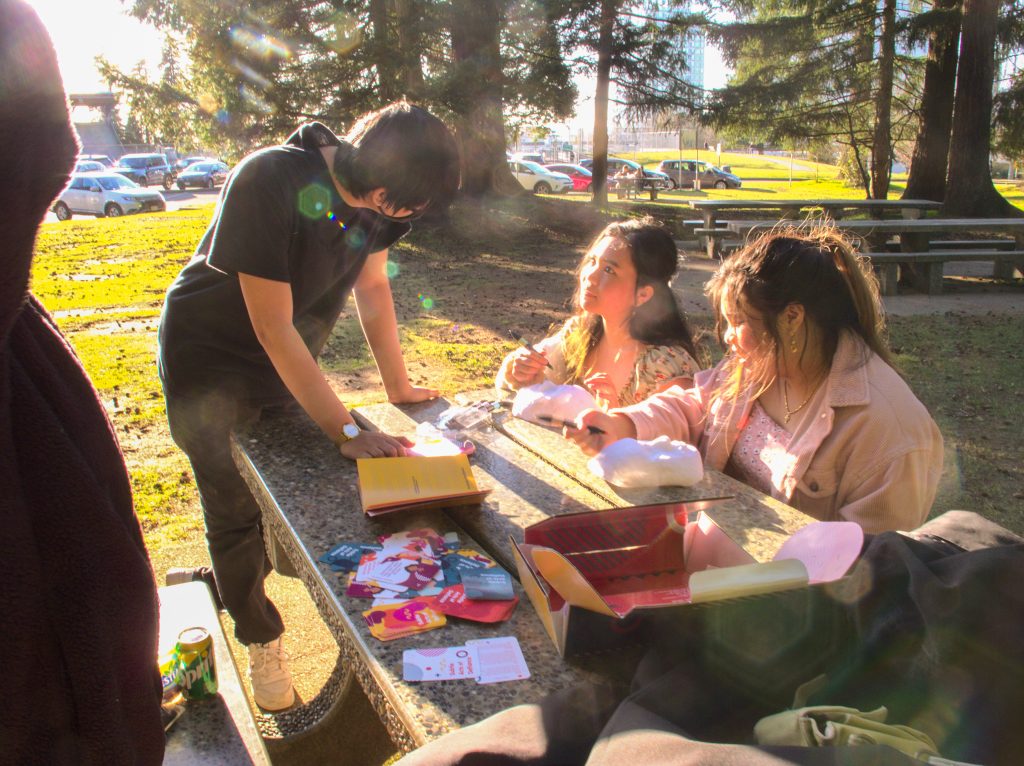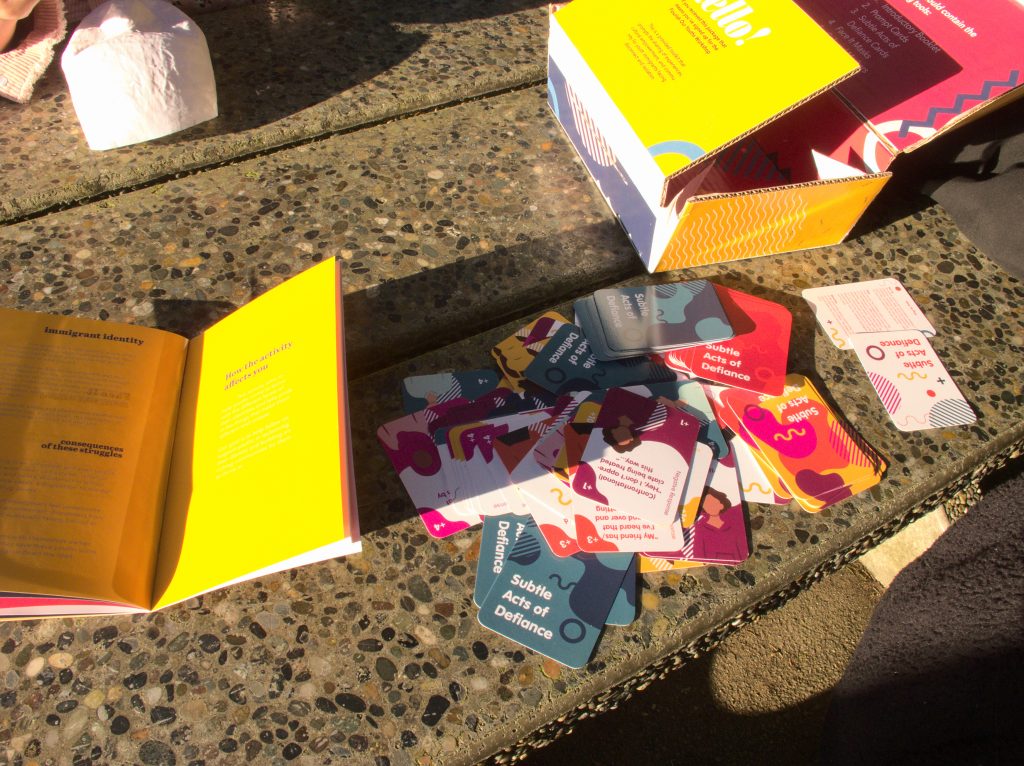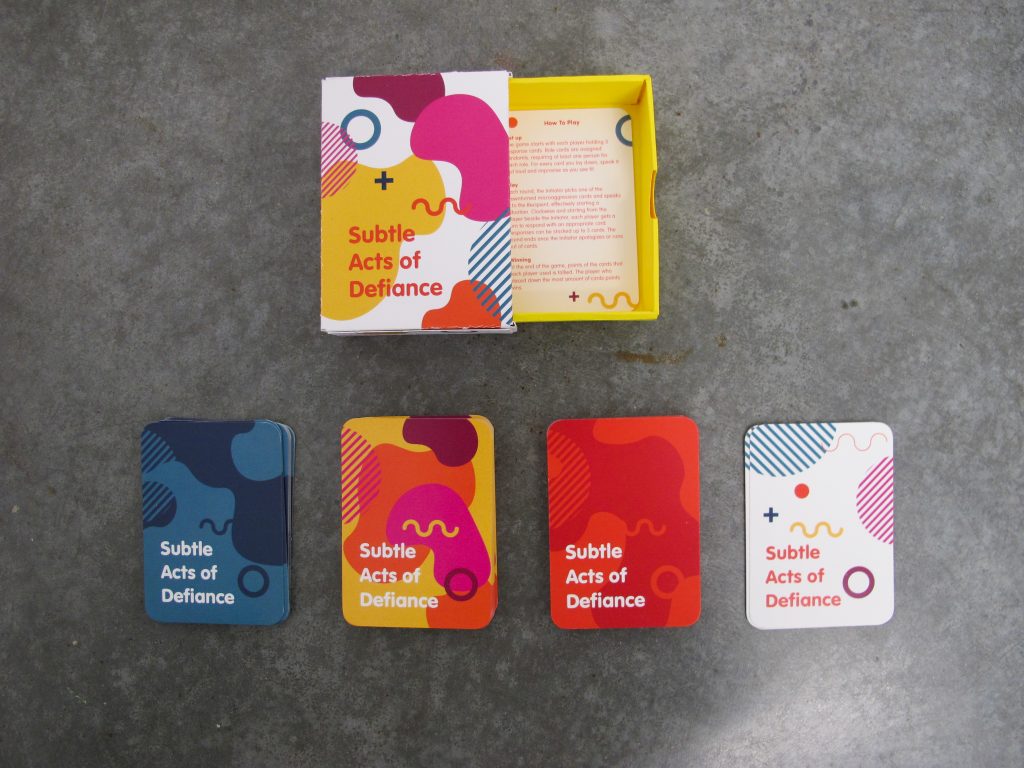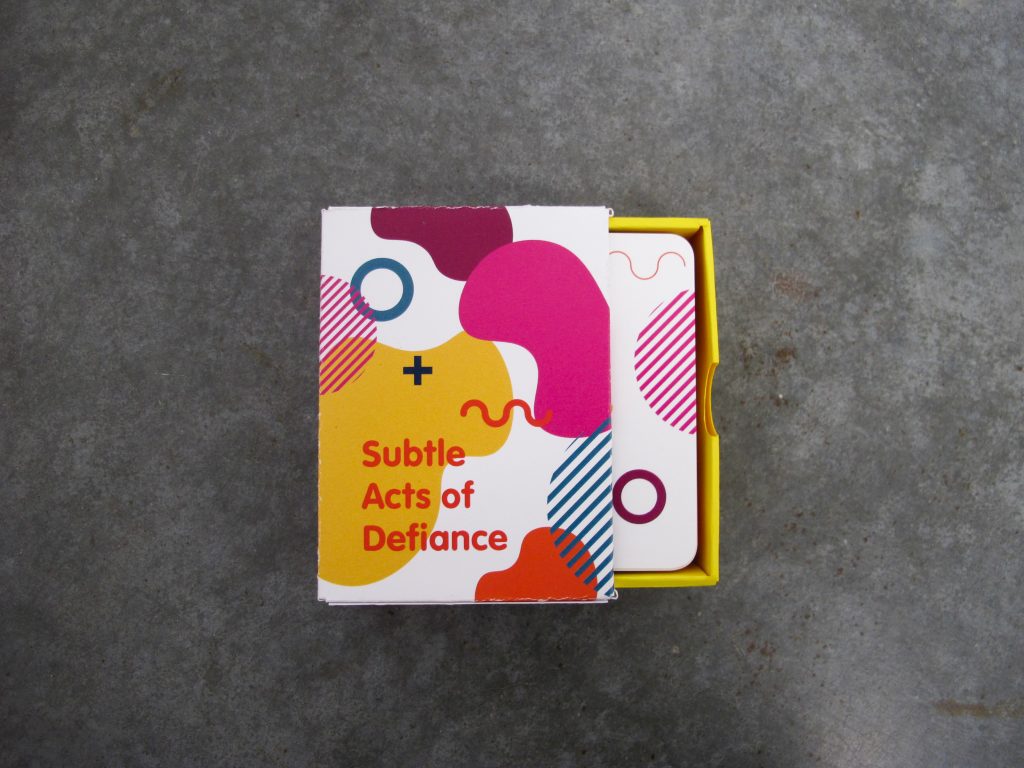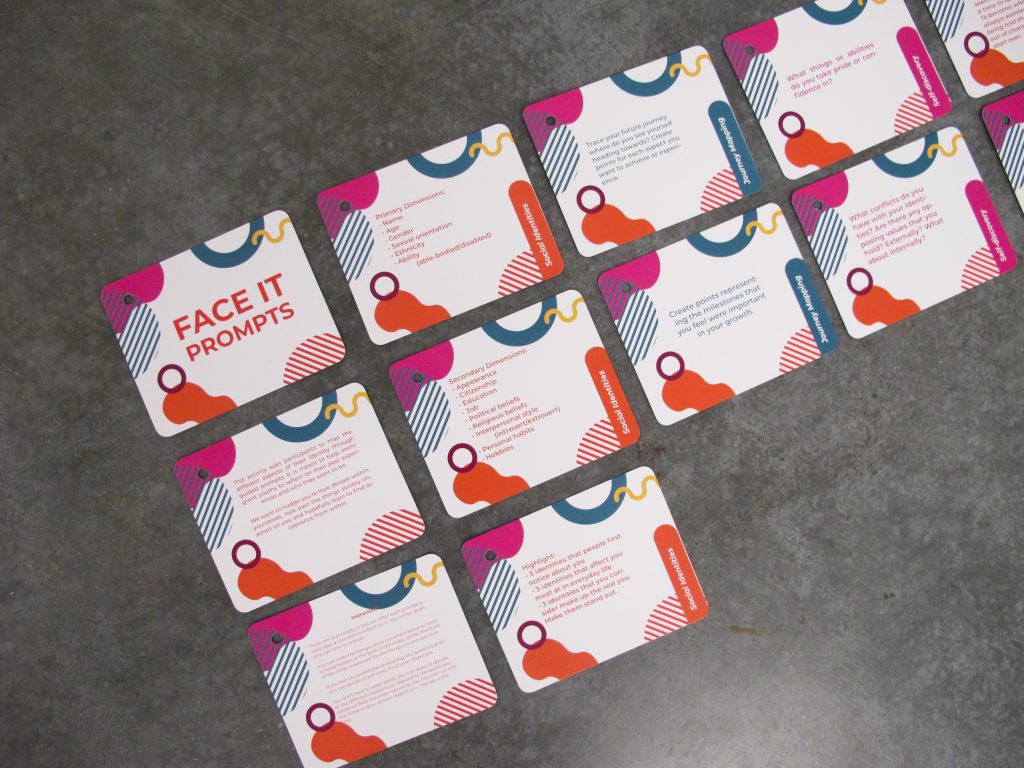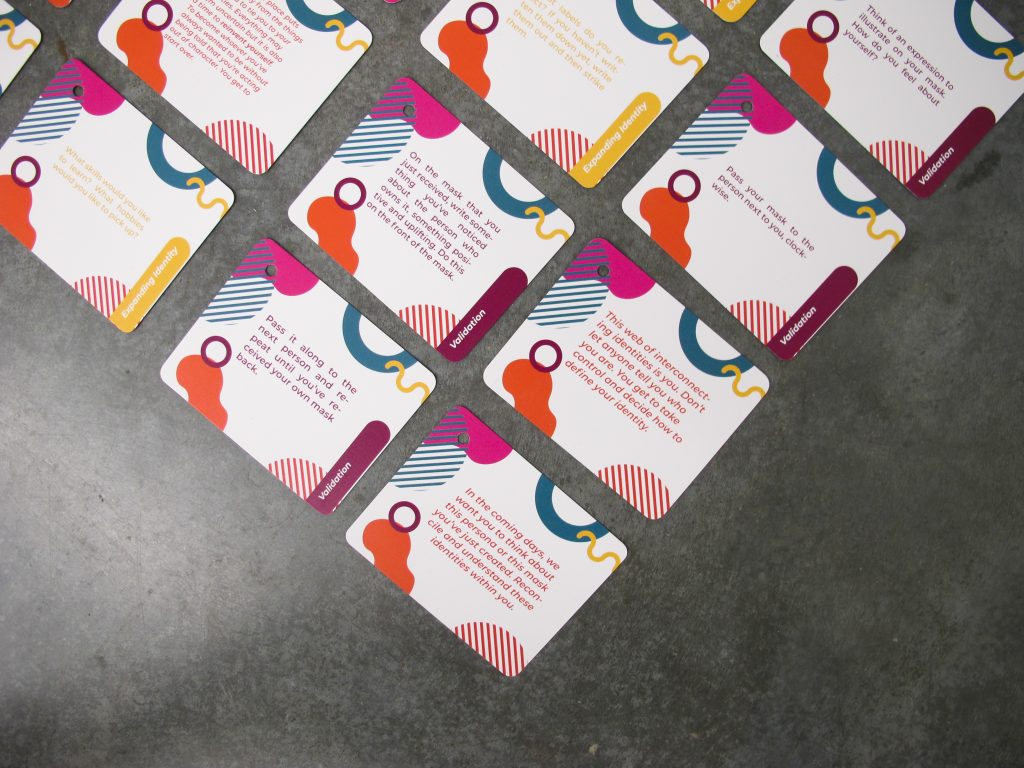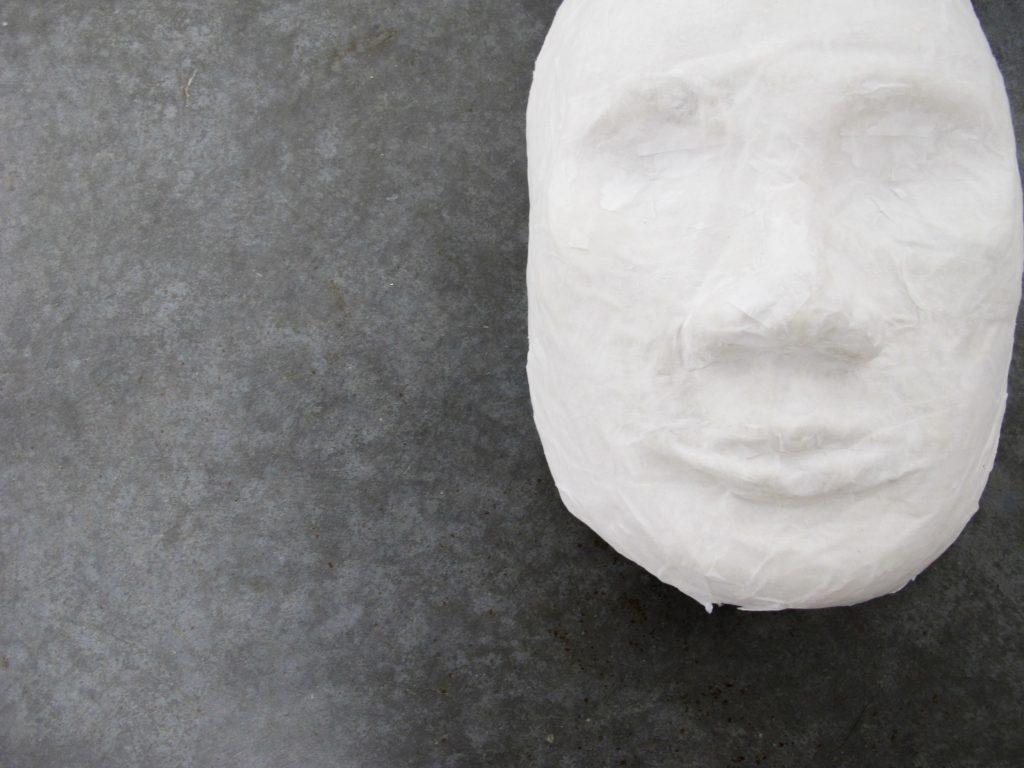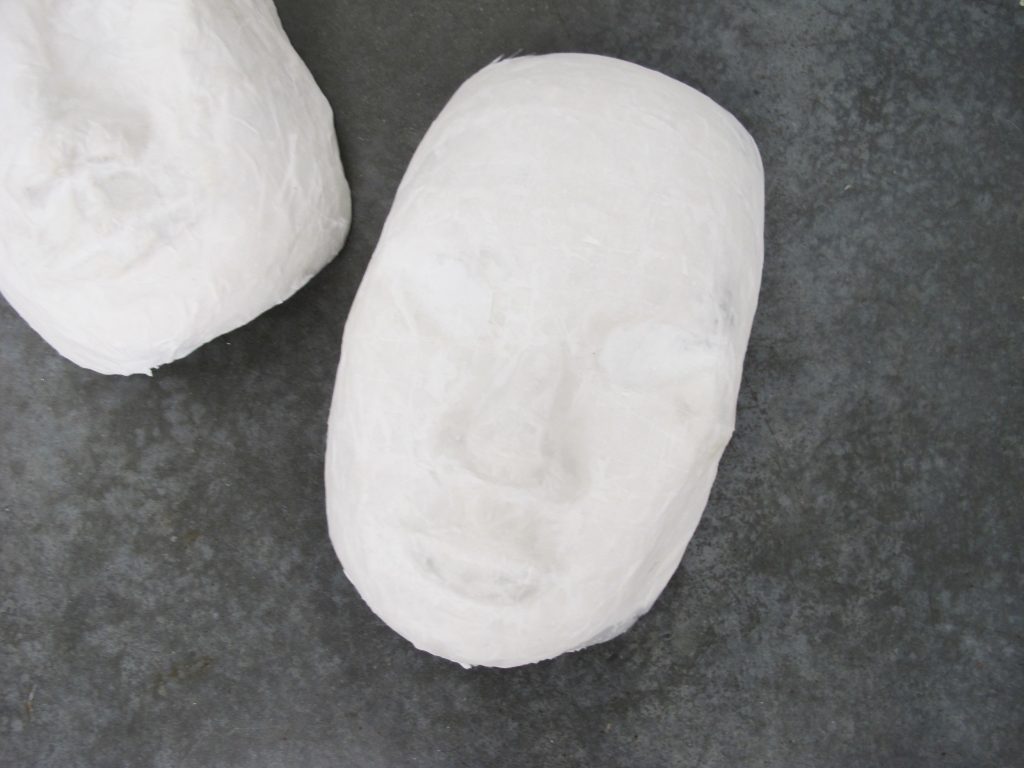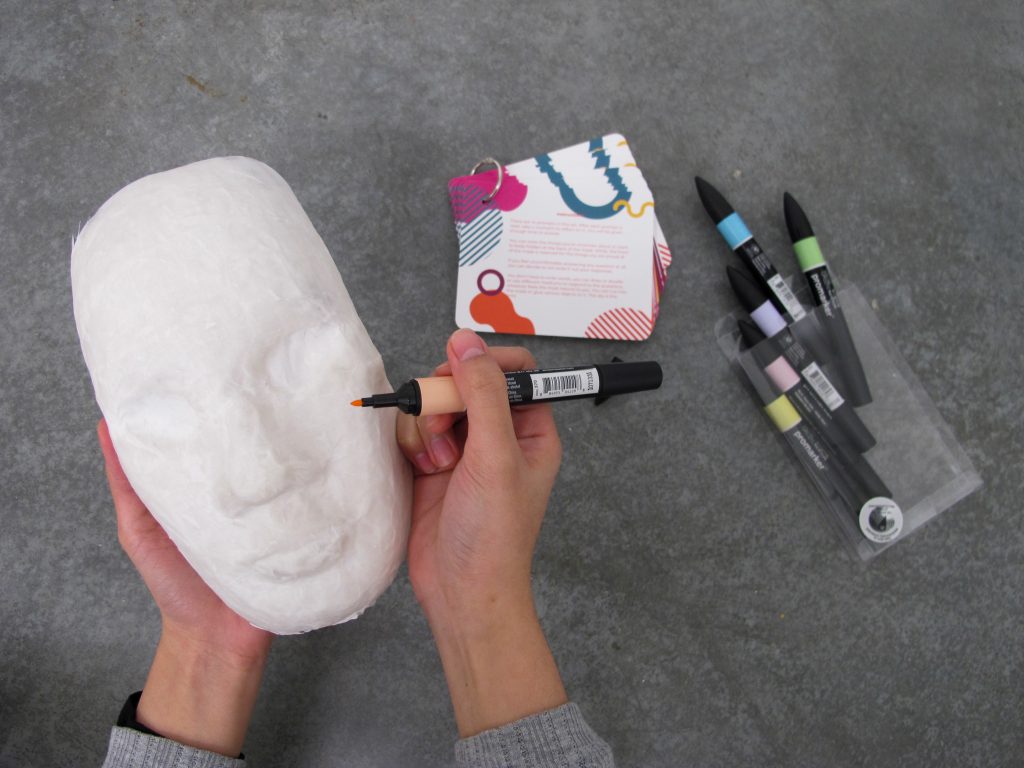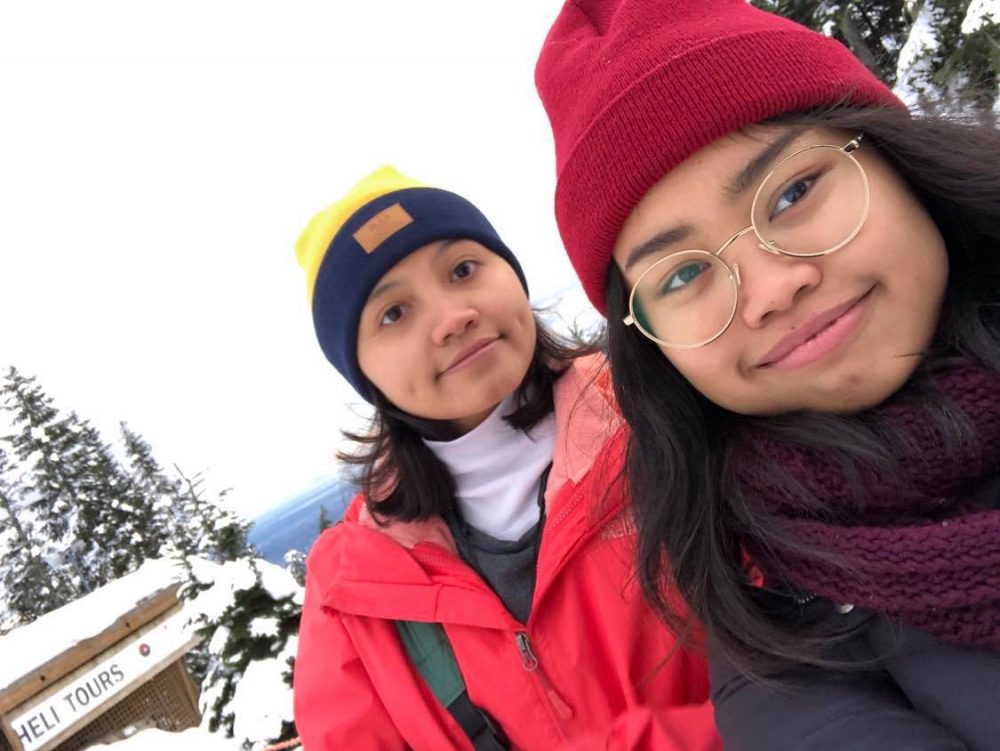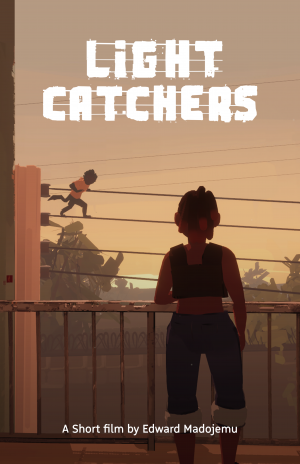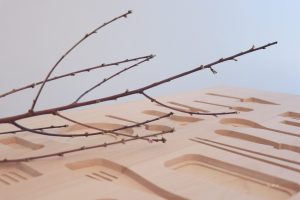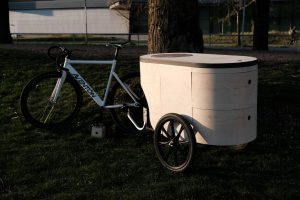Flourish Our Youths
Cyville Castro & Funan Fina
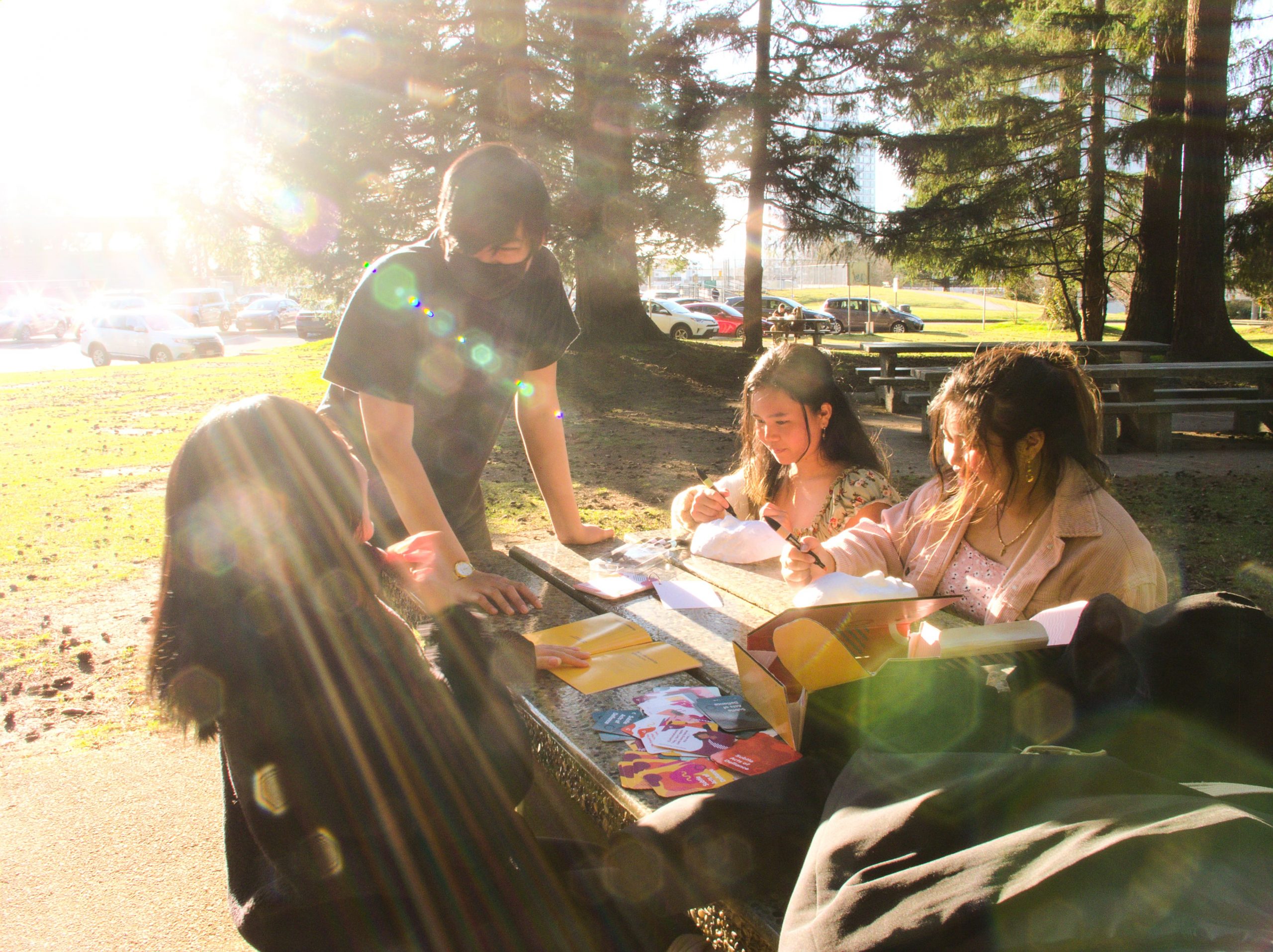
A workshop and toolkit that prompts the sharing of experiences, cultural empowerment and community for youth immigrants facing disconnect and isolation.
In collaboration with the Shumka Centre for Creative Entrepreneurship and Mentorship with InWithForward
Immigrating to a new country is one of the most stressful things youths can experience. They lose their ties to place and people that form the foundations of who you are. Youth immigrants go through a process of reconciling the differences in their cultures. It takes a long process of adjustment and rediscovering ourselves and our identities to feel belonging in their communities. Being in an unfamiliar and even hostile place can cause lower self-esteem, isolation from family and peers, disinterest in school, and in extreme cases, a disposition to mental health issues. We see many newcomers feel unwelcome in their school environment, disconnect from their peers, and eventually, fall behind in their studies. Coming into terms with themselves earlier than later in life and coming equipped with the tools to stand up for themselves may save these youths a lot of regrets and self-blame down the road.
In order to support young immigrants in their transition into Canadian society, we developed Flourish Our Youths, a workshop and toolkit that prompts the sharing of experiences, cultural empowerment and community for youth immigrants facing disconnect and isolation. It consists of two main components: a mask-making activity centred on identity and self-expression; and a collaborative card game about microaggressions to incite a conversation around difficult experiences and learn how to respond accordingly. The workshop attempts to point to the invisible systems of oppression that keep minorities and immigrants marginalized by unravelling external and internalized oppression among youths.
The Transition Toolkit

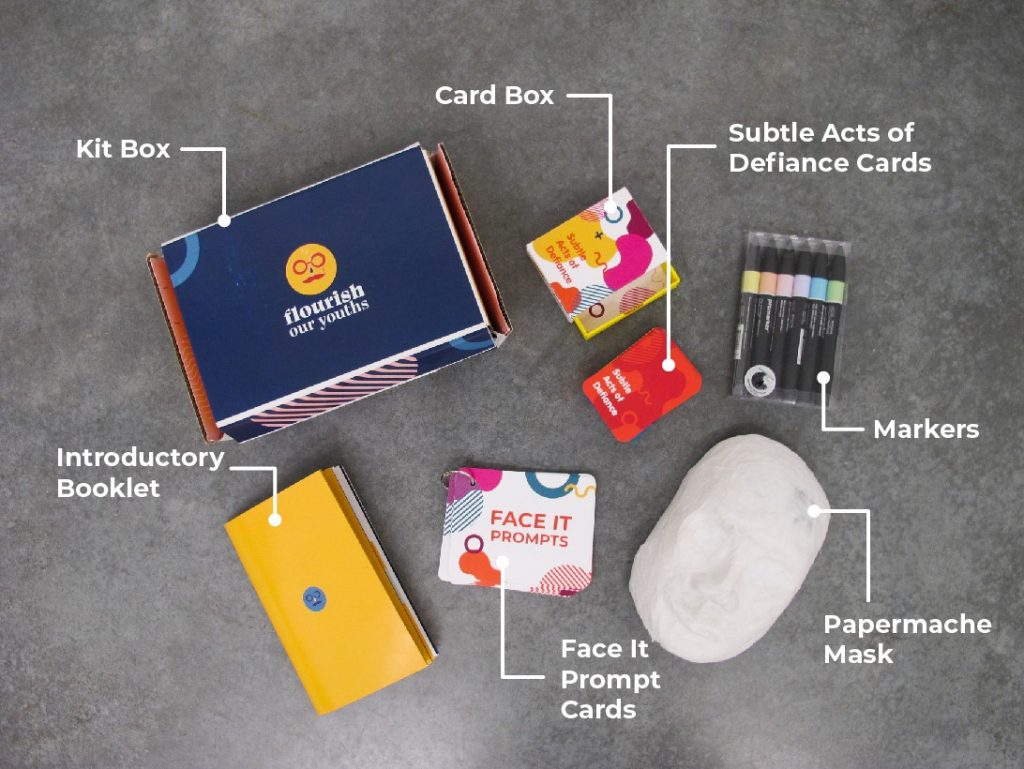
The Workshop

Subtle Acts of Defiance
Microaggression Card Game
For immigrants and minorities, microaggressions are simply a fact of life. It is well documented that microaggressions are a source of psychological stress. It is therefore important to educate the most vulnerable members of our society on the nature of these forms of racism and empower them to defy microaggressions.
The aim of this game is to create a space to openly discuss and validate the difficult experiences of youth immigrants. The cards inform participants on the nature of microaggressions and provide them with the vocabulary to engage with them more productively. The game unpacks deeply ingrained biases and attitudes in a fun and open environment.
Through facilitated role-play-based gameplay, participants are prompted to think about their own experiences of microaggressions, the underlying messages behind these acts, how they impact individuals and what their own roles are during these situations.
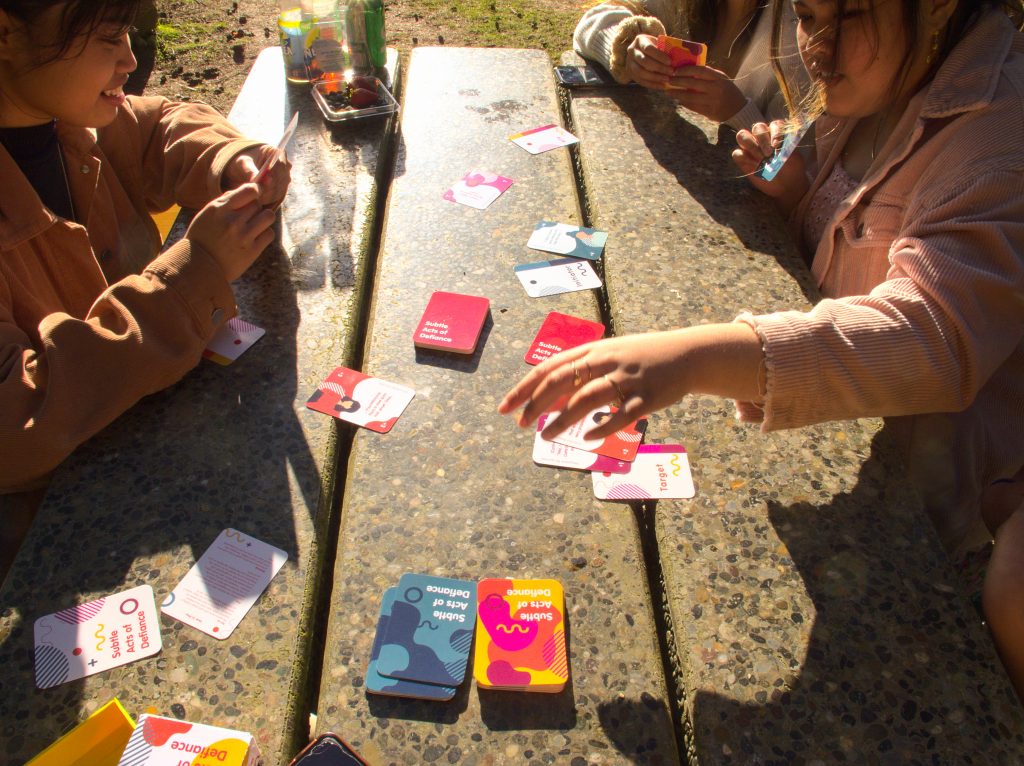
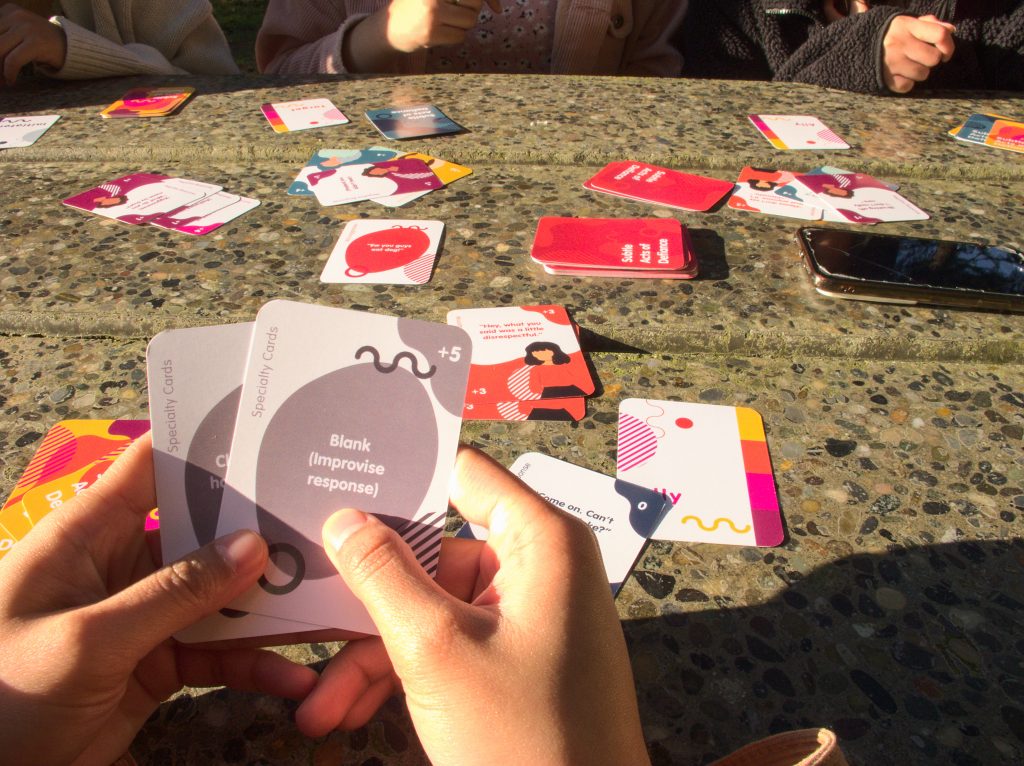

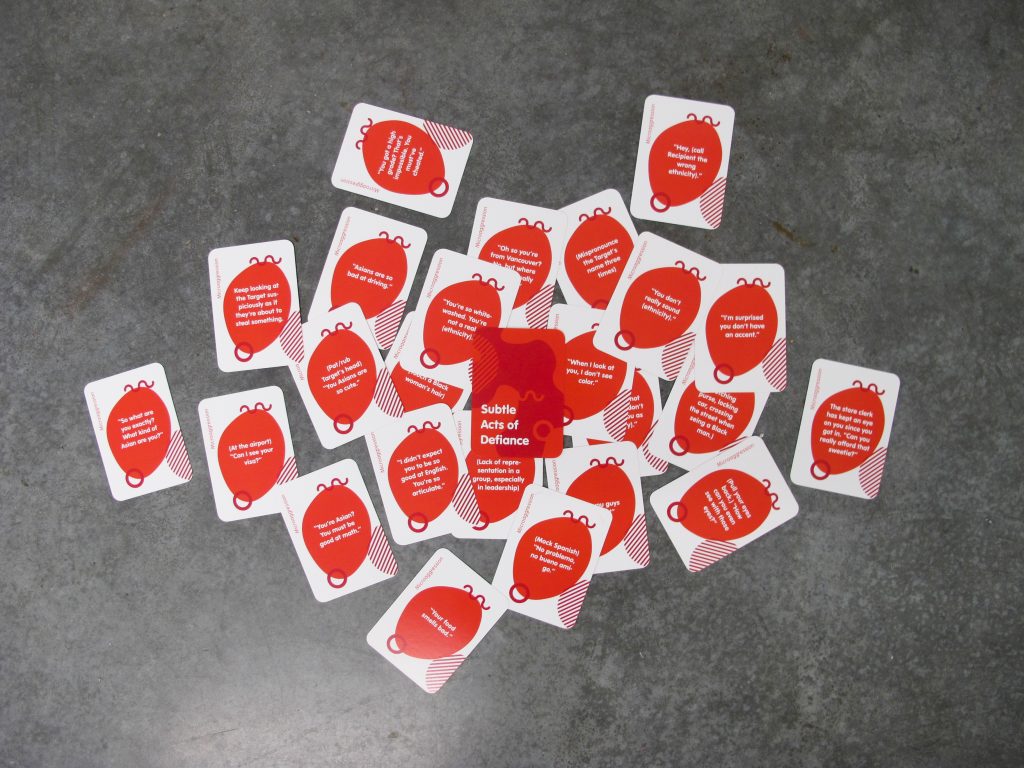
Face-It
Identity Mapping
Coming from an Eastern value system and moving to Western society, youth immigrants go through a process of reconciling the differences in their cultures. It takes a long process of adjustment and rediscovering their identities in a new Western context to feel belonging among their peers again. In addition to Subtle Acts of Exclusion experienced by newcomers on a daily basis, the foundation of their identity is also questioned and attacked.
This activity aims to help participants map the different aspects of their identity through guided prompts, which they will respond to by marking their own mask. It helps immigrant youths to reflect on their past experiences and who they want to be. We want to nudge the participants to look deeper within themselves, look past the things society imposes on them and hopefully learn to find acceptance within themselves. Our goal is to help fellow immigrant youths reclaim their identity, take pride in their heritage and thrive in knowing their own value.

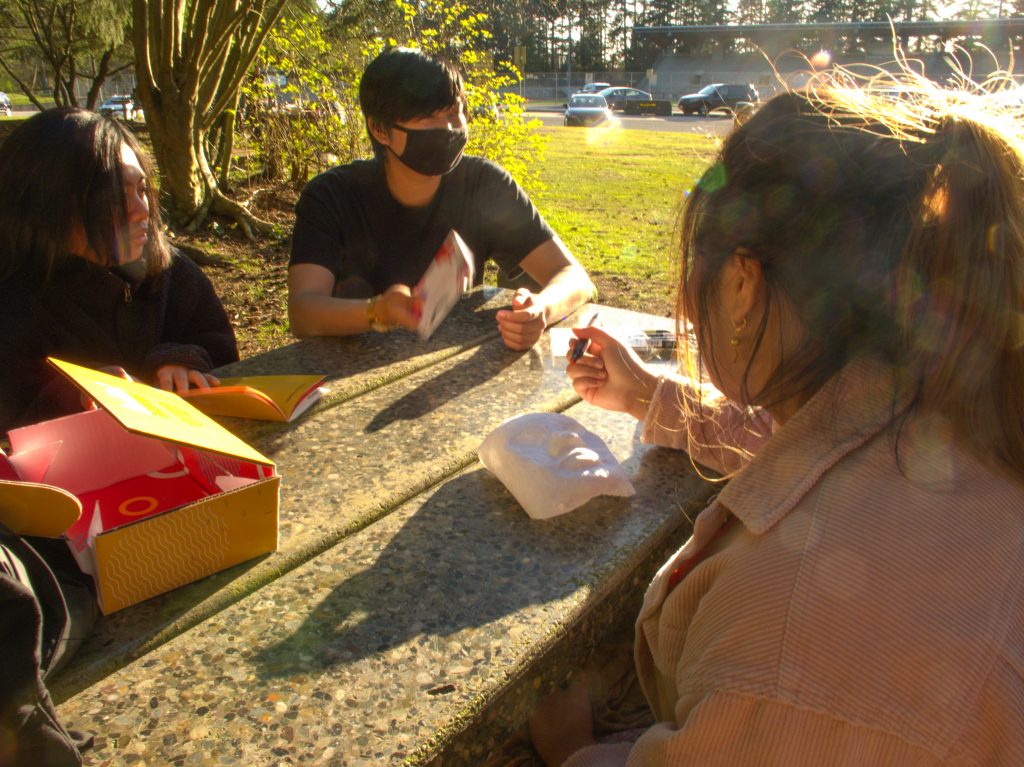
Concept Development
“I’m not sure, to be honest, I can’t say that I identify more to either side, because I still live with my parents so I speak a lot of Vietnamese and do Vietnamese family things, like I still feel connected to the Vietnamese culture, but not so strongly because I was born here. But I don’t identify as more Canadian either…”
“To be quite honest, I’ve always felt a disconnect in which country is my home country, so don’t really know.”
These are some of the responses, we received from initial research through a questionnaire about Identity.

We started out with the goal of connecting immigrants closer to their culture, but as the project evolved, we realized we had to look deeper than that. Through our primary research, internal questioning and reflection, conversations with peers and mentors, and the process of iteration, we arrived at the goal of lifting up youths so they feel belonging and acceptance. To do that we designed safe space, common ground, and community into the heart of the workshop.
We aim to lift immigrant youths to feel belonging and acceptance
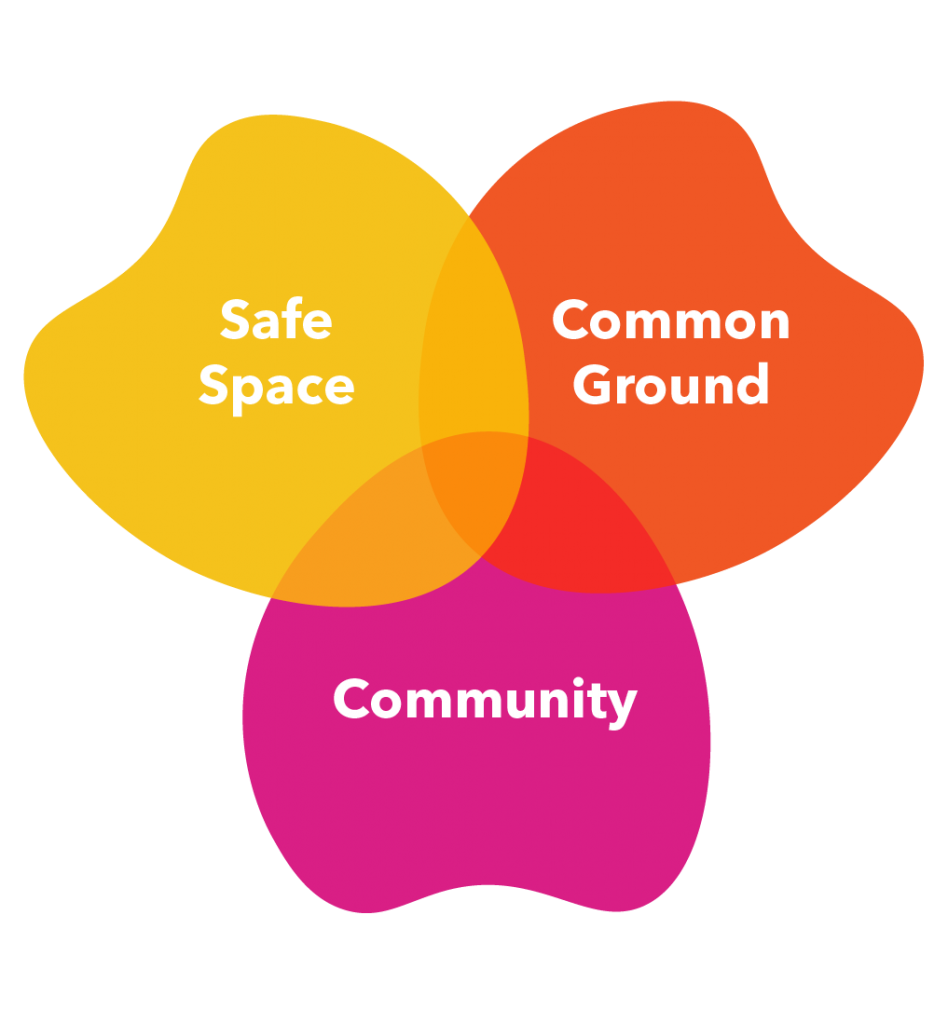

We have iterated various versions of the workshop, what it would look like, how it would play out with pandemic restrictions and eventually, we landed on two activities to fulfil the criteria we set for ourselves.
Growing Hate Crimes on the Asian American Pacific Islander (AAPI) Community in North America
During the development of our project, we became widely aware of the Stop Asian Hate rallies along with the development of the Stop AAPI Hate organizations in North America. The organizations brought to light incidents of discrimination, hate, and xenophobia against Asian Americans, and the Pacific Islanders. It also motivated and propelled us further into validating the importance of our project. Being a part of the community, we wanted to speak on the importance of unlearning racism within the community.
We aim to push and bring this kit outside of the learning sphere, into the current systems that are around us.
Acknowledgements
Thank you to our Mentors, Laura Kozak and Clarence Kitt, and Valentina Branada from InwithForward. Special Thanks to our Professors Louise St. Pierre, Sophie Gaur, Scott Staniland, and Keith Doyle for the guidance and support throughout the semesters. We’d also like to thank our friends that supported and helped us during research, testing, and designing especially with the restrictions around COVID-19 and the support and understanding given by our cohort of peers. This project wouldn’t be where it is at right now without your help.
